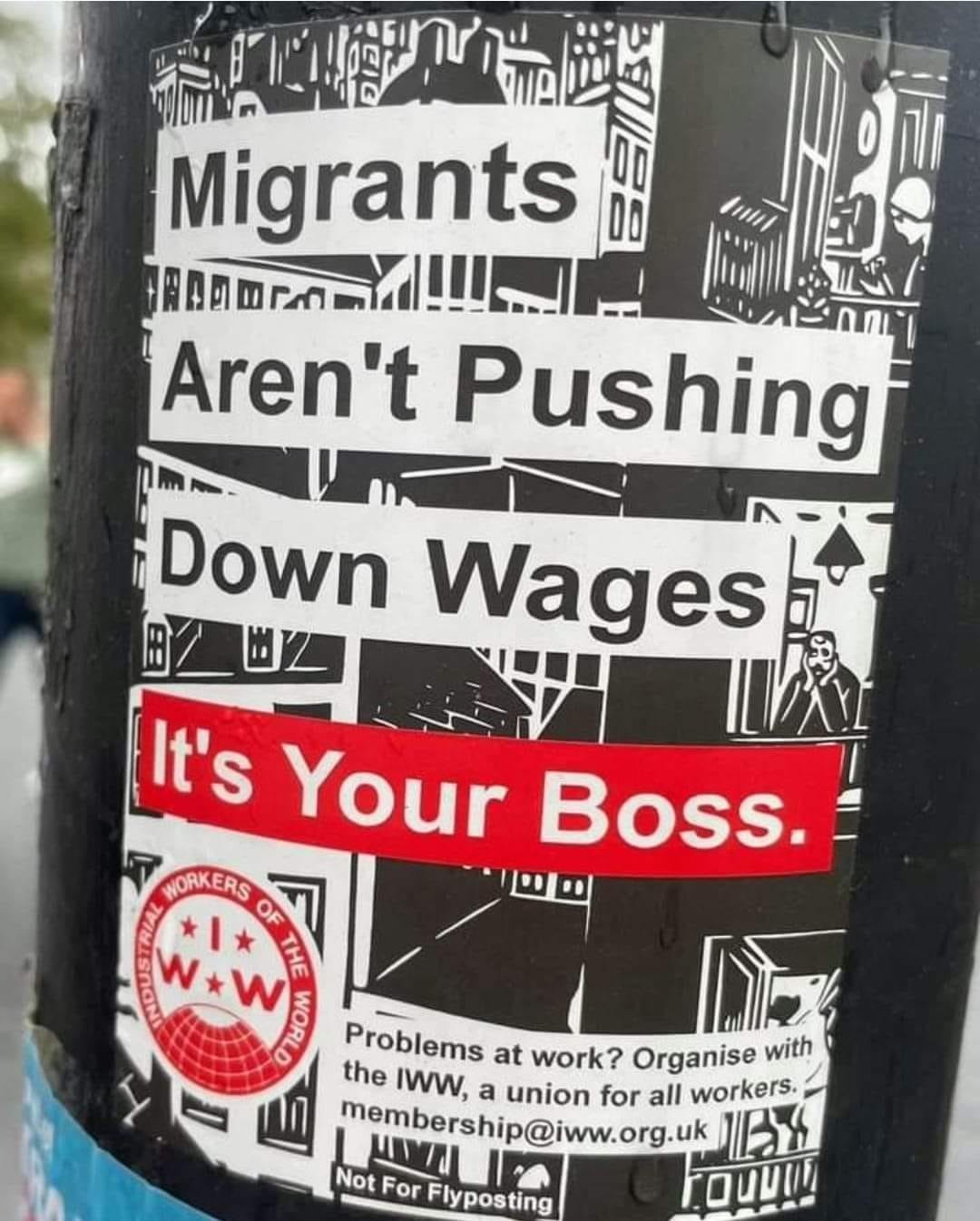this post was submitted on 14 May 2024
907 points (98.1% liked)
unions
1360 readers
99 users here now
founded 1 year ago
MODERATORS
you are viewing a single comment's thread
view the rest of the comments
view the rest of the comments

https://www.nber.org/system/files/working_papers/w32389/w32389.pdf
Basically all published research on this subject indicates that migrant labour has very little effect on native wages.
This makes sense, because a migrant is a human being, not a machine. That is, they do not just produce, they also consume.
Incidentally, I'm very gratified by people here not tolerating this sort of fash adjacent rhetoric. Shit made reddit intolerable.
https://www.nber.org/digest/apr17/winners-and-losers-h-1b-visa-program
It’s really not that simple.
It’s not that immigrants are “taking yer jerbs “ but it’s really hard to deny that the economics of supply with cheap labor will suppress wages.
I’m not anti immigration, nor am I pro globalisation. But it certainly seems like many jobs that are being filled by immigrants, are being filled by that because the companies are exploiting the immigrants and not paying local wages.
I work in the tech industry and I see it.
Hell, here in Canada, the TFW’s were used to staff Tim hortons and McDonalds because the employer didn’t want to raise wages to match the value of the labor they wanted.
So what happened? They brought in temporary foreign workers, abused them, housed them 6 to a room and charged them exorbitant rates for rent. The foreign workers were used to depress wages and they were treated like shit .
in THEORY they didnt pay less than minumum wage, but in practice after forcing them to rent housing from the franchiser, it worked out to less than minumum wage.
these are REAL results, and they don't show up on your imigration study because they didnt immigrate, they were just used.
All right, has a small postive effect on native wages in aggregate, as the paper I sent takes pains to point out.
The point being, increased competition in a given sector will lower wages, obviously. But, all that's really doing for the tech sector is drawing forward the natural balancing of supply and demand that would've happened through education, anyway.
Also, the study does take into account illegal immigration to the US.
As for your example of Canada's highly unethical immigration policies. We agree! Importing workers and denying them mobility leads, basically, to a caste system where it's more profitable to hire the lower caste. The solution here is not reducing migration, it's to ensure that all migrants have full legal working rights. Either you're in, or you're not. In between statuses are bad both for the migrant, and for the native working class.
https://publications.iadb.org/publications/english/document/Illegal-Immigration-Border-Enforcement-and-Relative-Wages-Evidence-from-Apprehensions-at-the-US-Mexico-Border.pdf
I totally agree on your final point, you’re in or you’re not.
The halfway programs cause problems, and they’re the ones I’m against.
Number of people relative to resources does matter though because otherwise India should be the richest country on earth….. but it isn’t.
I don’t have any great answers to that, but I can see the problem.
500 years ago, everyone, the west included, was poor, and everyone had basically the same amount of resources.
Then the west became rich. For many reasons, but certainly not resources per capita.
It may well turn out that in a century from now India matches the west in per capita income. Too early to say.
Unclaimed, fertile and abundant land that was practically being given away to people is a meaningful difference in easily available resources that early settlers of North America had available to them.
It’s not the ONLY difference, but certainly a meaningful one.